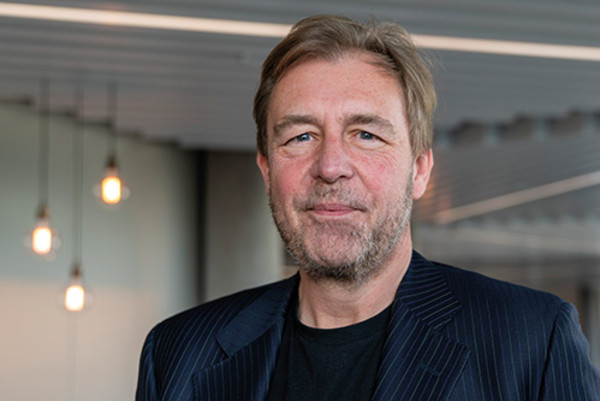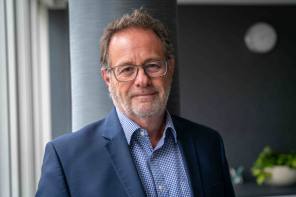

Little did he expect to be running a financial advice business exclusively focused on environmental, social and governance factors. However, that is what he did.
Mr MacDonald left St James’s Place in 2018 after an 11-year tenure, to set up his company called The Path.
He says he was motivated by an emerging interest in environmental matters over the past few years, after observing that a number of fund managers were not investing sustainably, despite appearing to do so.
It seems many of them were engaging in the process of greenwashing, which is when companies appear to be more sustainable than they are.
“There is a lot of pressure by environmental activists – such as Extinction Rebellion – on local councils and institutions to divest any investments made into fossil fuels out of their pension funds.
“Some faith-based groups and charities are keen to move their money out of fossil fuels,” Mr MacDonald says.
The profit pursuit that drives companies to try and make money “regardless of any situation” also facilitated his decision to found The Path.
He says: “I came to realise that a lot of companies that people invest in have got investments which encourage the use of fossil fuels.”
While Mr MacDonald says capitalism is needed in order for clients to maximise profits, he questions whether it has prevented people from wanting to invest sustainably.
Mr MacDonald says The Path involves dealing only with clients who have got the desire to have their personal financial portfolios aligned with ESG investments.
However, he has not actually come across any clients who are not willing to consider ESG factors while investing.
“We started [onboarding clients] before Christmas and things are gathering pace through [the first quarter of the year],” he adds.
The fees levied by the advice company are typically around 2 per cent of the funds invested with a 0.75 per cent ongoing management fee.
He says the main challenge of running the business is assessing whether a market exists in the first place.
“We started with a clean sheet of paper, no existing clients, no enquiries, no real model to follow.
“The biggest challenge is understanding and reacting to consumer demand and forging into the unknown. Is there a market there?” he adds.
“I was fed up being part of this capitalist system, which I had naively imagined to be problematic from an environmental perspective,” Mr MacDonald says.
Mr MacDonald came into the industry by chance. He was born and raised in Edinburgh. He says: “There were only two careers in Edinburgh at that time. One was banking, the other one was insurance.
“I slipped into the insurance side. It became apparent that the lifestyle associated with the more client-facing side of the business was more attractive.”
Giving back to the community
Mr MacDonald’s proudest moment of his career is the volunteering work he did at St James’s Place Charitable Foundation.
“It is a phenomenal culture of money-raising for good causes and a lot of the community there commits time to fund-raising.
“The small contribution I made there was my chance to give money back to the community.”
One of these contributions, he says, was undertaking a three-day bike ride from London to Paris. The ride entailed each volunteer raising £700 through donations for the St. James’s Place foundation.
In terms of practicalities for his new business, Mr MacDonald says that along with hiring advisers and expanding the team he wants to see that they have some alignment to his values.
He adds: “It has taken a long time for my personal values to emerge and I am delighted to be able to align my new business activity to things which resonate with my core values.”
Mr MacDonald says that while advisers consider ESG a crucial area while serving clients, many still do not understand the concepts mainly due to inertia.
If they do want to change tack it can then be difficult to convince some clients, as people tend to be scared of change, he says.
“It might be difficult to have a conversation with clients [and tell them], ‘We have changed our investment philosophy.’
“There is probably some scope for educating financial advisers on it,” he says.
There are several stocks that Mr MacDonald says align with his values – Tesla and Beyond Meat being two examples. Mr MacDonald says the upward trajectory in Tesla’s stock price, which has risen about 85 per cent in the last month and hit a high of $887.06 (£676.37), is evidence that most developed countries are trying to go green and increasingly produce electric cars.
“We have seen a commitment from Microsoft to go carbon neutral and negative, and we have seen Sainsbury’s commit to go carbon neutral at a more ambitious date than probably it would have [committed to otherwise],” he says.
“Funds we favour would be invested in these type of stocks,” he says.
These types of funds are becoming more and more popular among clients he says, and advisers will have to deal with it.
Mr MacDonald says: “As consumers become most aware of the impact their money can have, clients will have more conversations with advisers.
“It can really deepen a client-adviser relationship to talk about these things if it resonates with [an individual’s] core values.”
Saloni Sardana is features writer atFTAdviser and Financial Adviser



